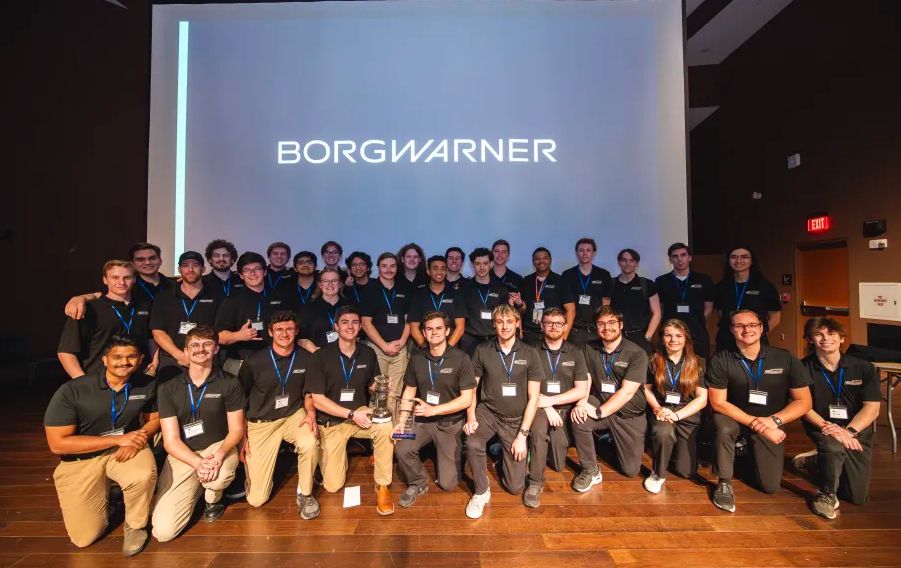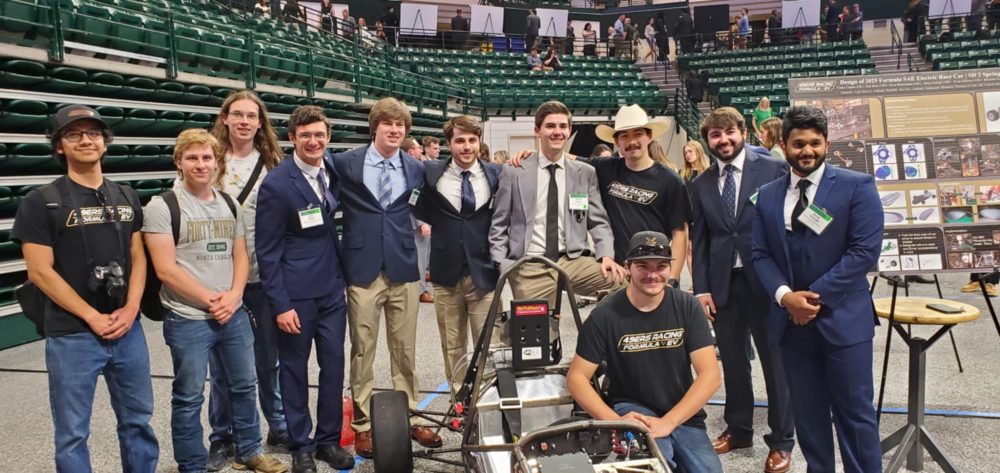Ean Bass Earns Degrees for the Science Side of Motorsports
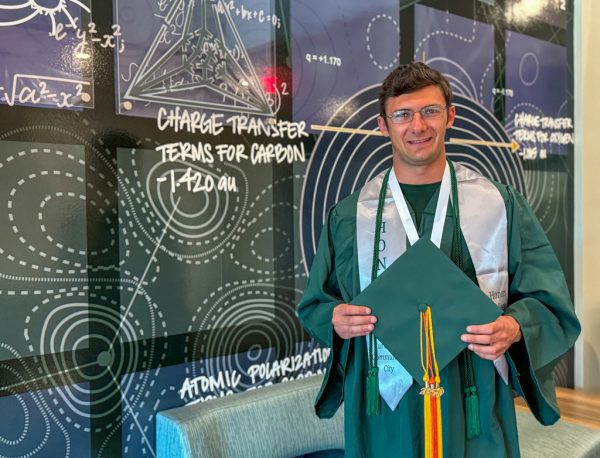
Ean Bass grew up in Mooresville immersed in motorsports, deciding to pursue mechanical engineering with the encouragement of his father who spent his career as a race car engineer.
Bass took college classes at Mitchell Community College during his junior and senior years of high school, so when COVID-19 began, it was easy to continue his coursework there to finish an associate degree in engineering. Bass realized that with one additional science class he could also earn an associate of science degree, so he took Organic Chemistry I.
“I had no clue what I was getting myself into, but I did surprisingly well. I got an A, so I thought to myself that this wasn’t that hard,” said Bass. “Then I took Organic Chemistry II, and I did it immediately afterwards in the summer session. That was pretty crazy to do in five weeks, and it was probably the hardest class I have ever taken, but I survived.”
After completing both the AE and AS degrees, Bass transferred to UNC Charlotte and began taking engineering classes in the William States Lee College of Engineering. He crossed the stage in May with dual bachelor of science degrees in physics and mechanical engineering, with a motorsports concentration.
Yet, after spending his youth driving cars, he considered that he could expand his knowledge even further of the science side of motorsports, thinking of the chemistry classes he had completed and the doors it could open for him.
“I got it into my head that I might want to be a test driver as that’s what I grew up doing,” said Bass. “I realized later down the line that it would be advantageous for me to not only understand engineering and all the forces to go through the tires, but also the chemistry behind all the rubber compounds. There’s a whole separate world beyond modeling the tires — it’s making the compounds and designing the rubber. So those chemistry classes were the impetus for another degree.”
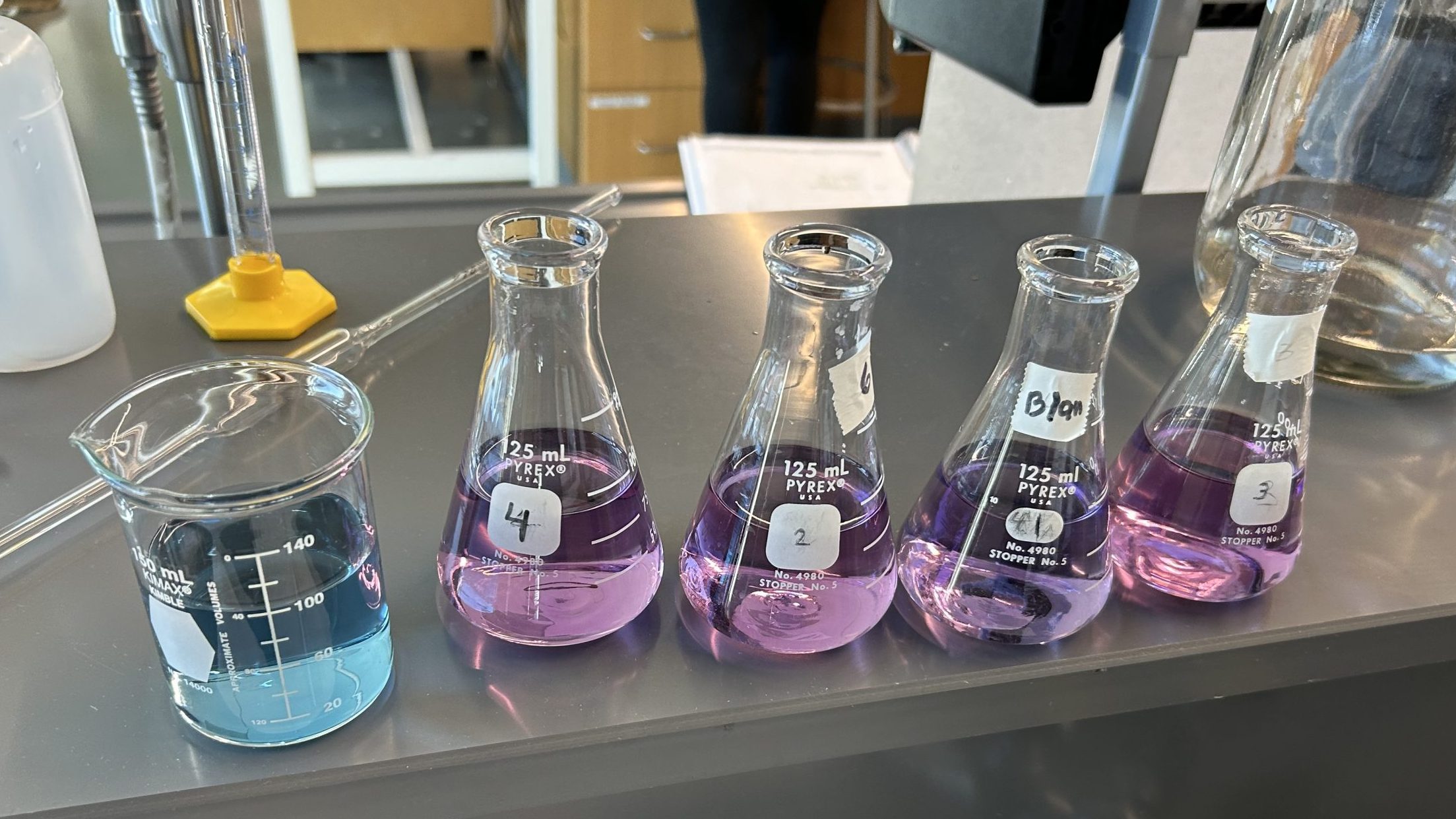
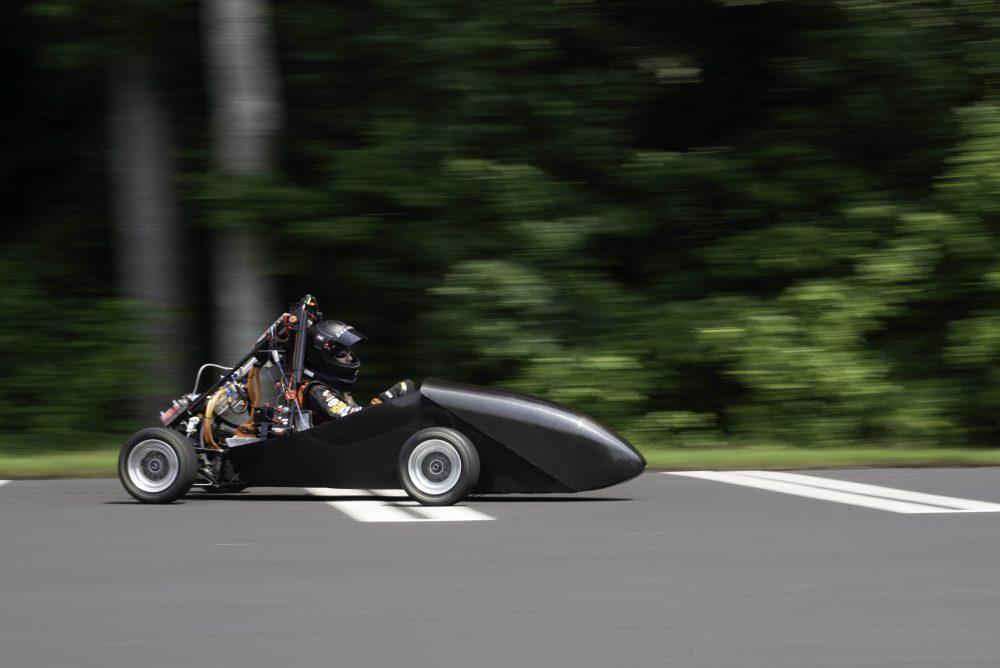
Three months later, a third degree
With the introduction of UNC Charlotte’s first-ever summer commencement ceremony, Bass found an opportunity that he hadn’t planned, and will be graduating with a third undergraduate degree a mere three months after he earned the first two.
This August, fueled by his desire to understand not only the engineering but science portion of the sport he loves, he is adding another degree from the Klein College of Science: a bachelor of arts in chemistry with a mathematics minor.
Bass really enjoyed his courses in chemistry and the science portion of his education, crediting faculty Eric McKenzie, Jessica White and Susan Michael for significant support as he worked to finish three degrees in such a compact timeframe. When he needed to juggle his class schedule and find a way to fit in electives and the last remaining classes, Bass said they “came to the rescue.”
“They were truly awesome as teachers and when the time slots for my classes didn’t line up. I’ve really gotten to know them well and realized there is so much advising they also do behind the scenes, especially when working with three different departments in two different colleges. I reached out for help and they went above and beyond for me. My advice to another Charlotte student would be to not take three degrees in the span of two years,” said Bass, laughing.
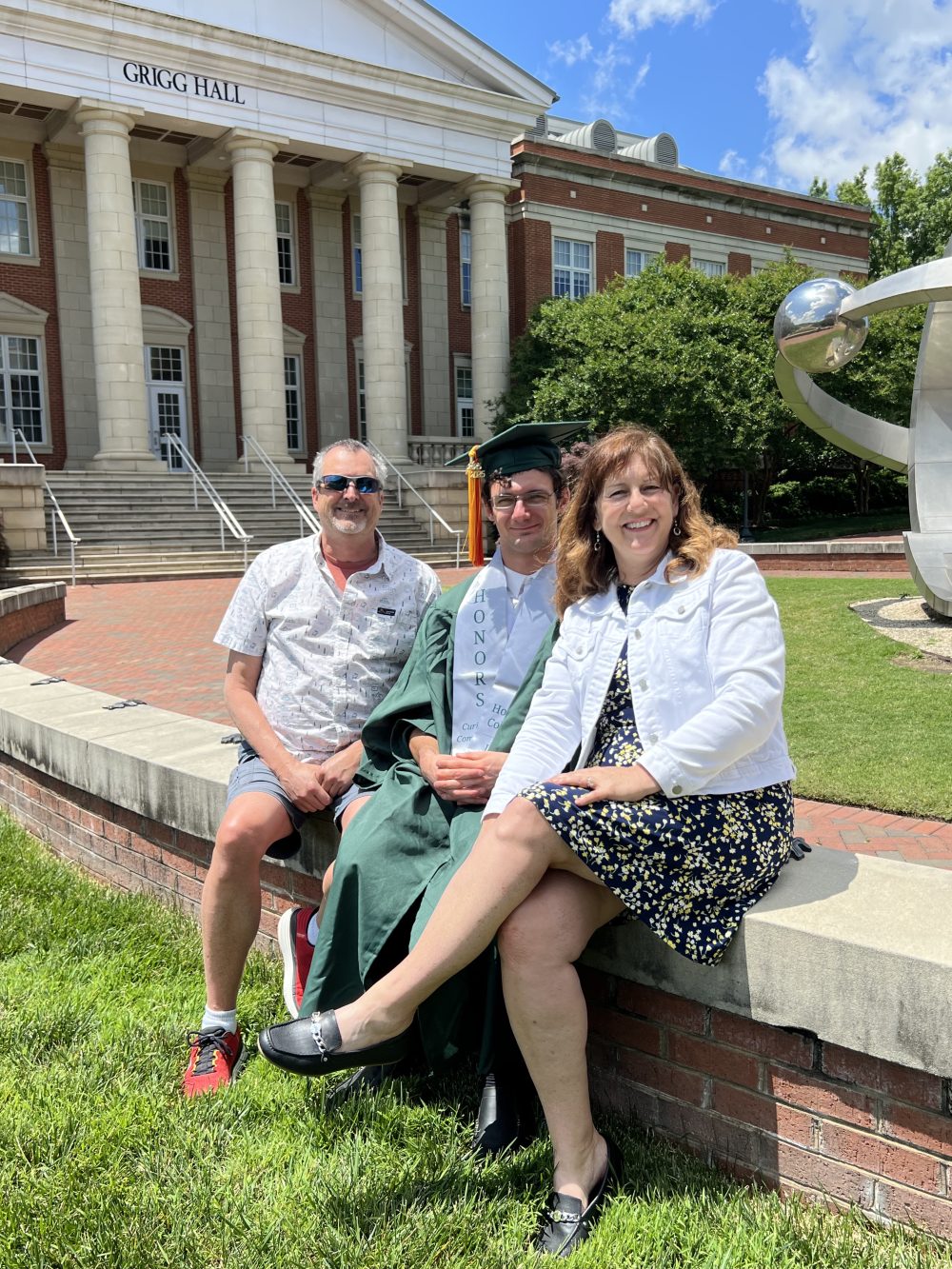
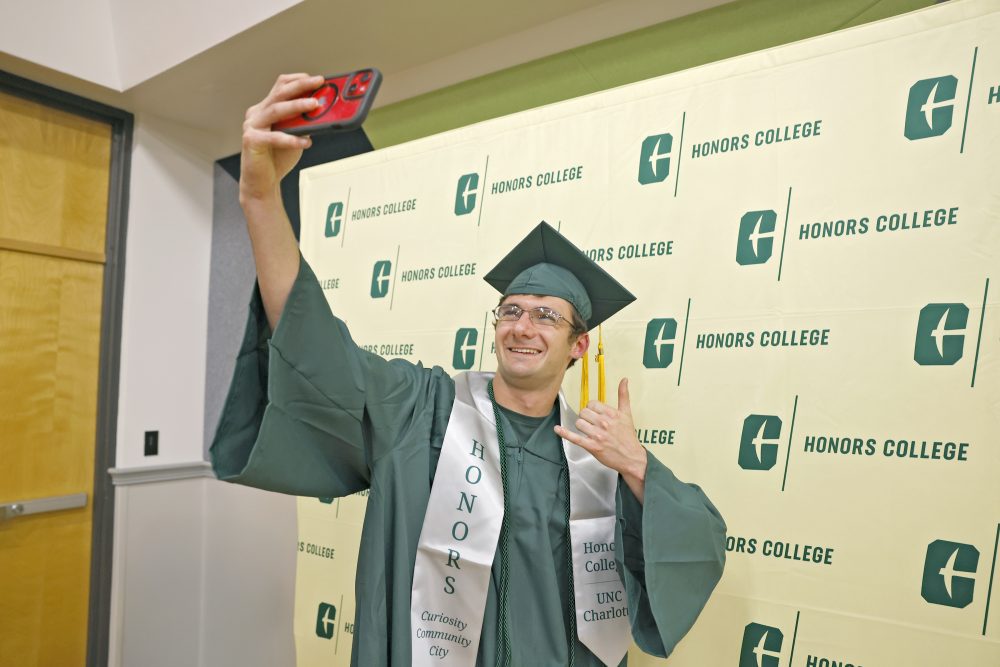
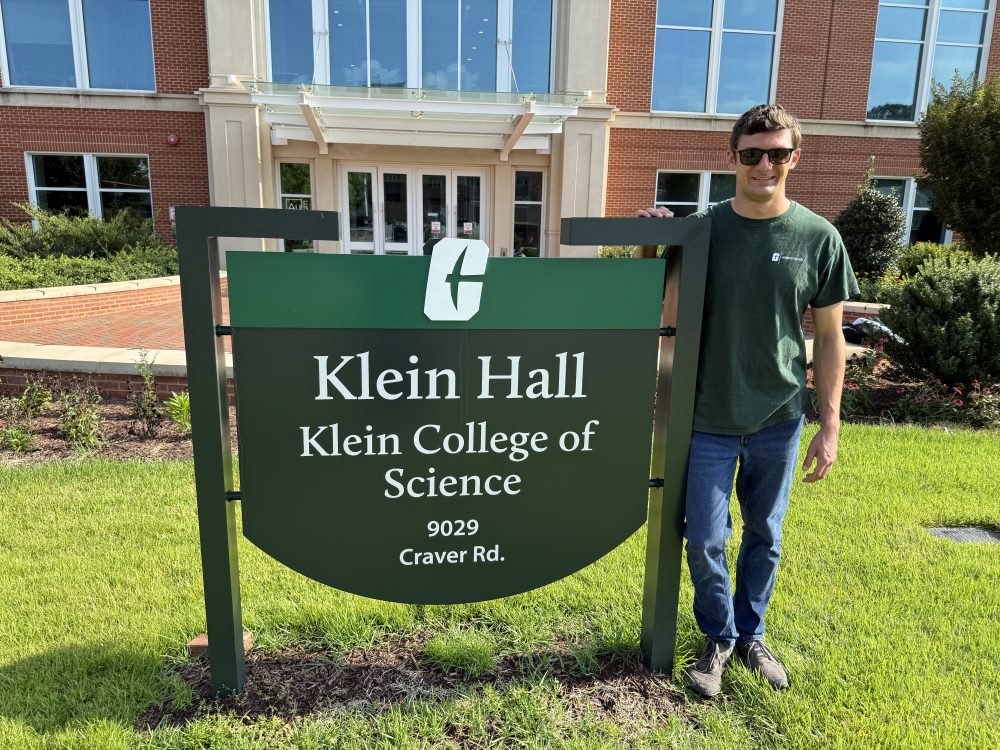
Where Science and Motorsports meet
Bass took a lot of his engineering courses in the summer as he worked on the formula car team and filled his schedule with chemistry and physics classes in the fall and spring. He explored the overlap between motorsports and the physics and chemistry in the science of it.
“My background is racing. But after I started chemistry classes, I saw science in the batteries, tire compounds, combustion engines and what fuel composition you need to use,” said Bass.
Bass also helped conduct research in the BATT CAVE and saw firsthand the similarities and differences in the chemistry and engineering side of how batteries work.
“When we go over heat transfer in engineering and then we go over thermodynamics in chemistry, there is overlap and they’re very similar. You’re talking about the same subject but in two different ways,” said Bass. “I saw all my work from engineering again in chemistry, and from both sides it was just described differently, so it was very beneficial for my understanding.”
Bass is looking forward to flexing this interdisciplinary approach to help him explore the next step in his path. He has applied for graduate schools and jobs across a variety of industries from tires to rockets, and is willing to go where the opportunities might take him. Wherever he lands, he will be looking for the same things he loves and found at Charlotte — the culture, the people and the work of a great team.
